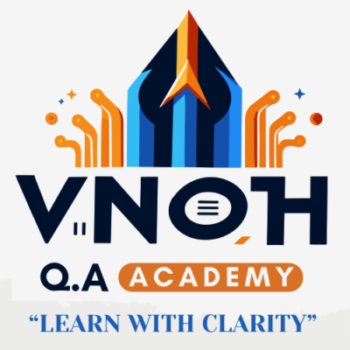Types of Java Applications
Java is a versatile programming language used to develop a wide variety of applications. Here are the primary types of applications that can be built using Java:
1. Desktop GUI Applications #
Java is widely used to create graphical user interface (GUI) applications for desktops. Java provides several libraries and frameworks to build desktop applications, such as:
- Swing: A lightweight GUI toolkit that includes a rich set of widgets for building desktop applications.
- JavaFX: A modern framework for building rich internet applications (RIAs) with advanced graphics, media features, and enhanced GUI components.
Example: An IDE like IntelliJ IDEA, text editors, and financial software.
2. Web Applications #
Java is extensively used for developing dynamic and interactive web applications. Java-based technologies and frameworks facilitate the creation of robust, scalable, and secure web applications:
- Servlets and JSP (JavaServer Pages): Core technologies for server-side programming.
- Spring Framework: A comprehensive framework that supports building web applications with various modules, including Spring MVC for web applications.
- JavaServer Faces (JSF): A framework for building user interfaces for web applications.
Example: E-commerce platforms, online banking systems, and content management systems (CMS).
3. Enterprise Applications #
Java is the backbone of many enterprise applications due to its scalability, reliability, and extensive ecosystem. Enterprise Java applications typically involve complex business processes and large-scale transactions:
- Java EE (Enterprise Edition): A set of specifications and APIs for building large-scale, multi-tiered, scalable, and secure enterprise applications. Key components include Enterprise JavaBeans (EJB), Java Persistence API (JPA), and Java Message Service (JMS).
Example: Enterprise resource planning (ERP) systems, customer relationship management (CRM) systems, and supply chain management systems.
4. Mobile Applications #
Java has been a dominant language for mobile application development, particularly for Android:
- Android Development: Java was the primary language for developing Android applications before Kotlin was introduced. Android SDK provides all the necessary tools and APIs for Android app development.
Example: Mobile apps for social media, gaming, and productivity.
5. Web Servers and Application Servers #
Java is used to create powerful and efficient web servers and application servers that host web applications and services:
- Apache Tomcat: A widely-used web server and servlet container for running Java servlets and JSP.
- JBoss (WildFly): An open-source application server used for building, deploying, and hosting enterprise Java applications.
Example: Hosting environments for dynamic websites and web services.
6. Scientific Applications #
Java is also used for developing scientific and research applications due to its powerful computation capabilities, portability, and extensive library support:
- Mathematical and Simulation Tools: Applications that require complex mathematical calculations, simulations, and data processing.
Example: MATLAB-like applications, simulation tools for scientific research, and data analysis tools.
7. Embedded Systems #
Java is utilized in embedded systems due to its portability and robustness. Java ME (Micro Edition) is specifically designed for developing applications on resource-constrained devices:
- Java ME: Provides a robust and flexible environment for applications running on embedded and mobile devices with limited resources.
Example: Smartcards, sensors, and other IoT (Internet of Things) devices.
8. Big Data Technologies #
Java plays a significant role in big data technologies due to its performance and scalability. Many big data frameworks and tools are built using Java:
- Apache Hadoop: An open-source framework for distributed storage and processing of large data sets.
- Apache Spark: A unified analytics engine for large-scale data processing.
Example: Data processing platforms, data analytics tools, and distributed storage systems.
9. Cloud-Based Applications #
Java is often used to build cloud-based applications due to its platform independence and robust ecosystem. It is supported by various cloud platforms and services:
- Microservices Architecture: Java is well-suited for developing microservices, which are used extensively in cloud environments.
- Cloud Platforms: Platforms like AWS, Google Cloud, and Azure support Java applications, enabling seamless deployment and management.
Example: Cloud-native applications, Software as a Service (SaaS) solutions, and distributed applications.
10. Game Development #
Java is used in game development, particularly for mobile and desktop platforms. Libraries like LibGDX and frameworks like jMonkeyEngine support game development:
- LibGDX: A cross-platform game development framework for developing games for desktop and mobile platforms.
- jMonkeyEngine: A game engine designed for creating 3D games.
Example: Mobile games, desktop games, and 2D/3D interactive applications.
Conclusion #
Java’s versatility, robustness, and extensive ecosystem make it a suitable choice for a wide range of applications, from desktop GUI applications to large-scale enterprise solutions and mobile apps. Its continued evolution and strong community support ensure that Java remains a leading programming language in the industry.



